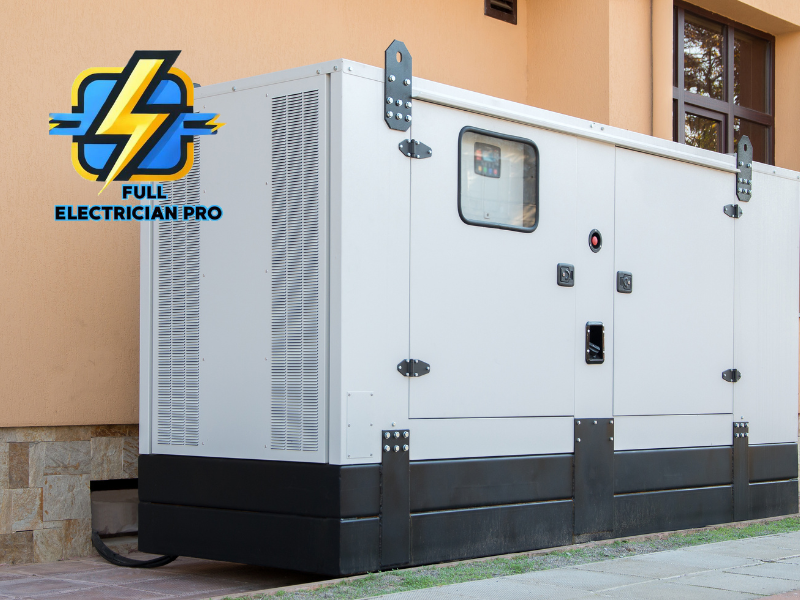
Portable Generators: Common Issues, Repairs, and Benefits
Portable generators offer a reliable backup power source during outages, making them an essential tool for both homes and businesses. Whether used for powering essential appliances, equipment, or even entire homes, portable generators must be maintained properly to ensure they work when needed. This guide covers the common and uncommon issues with portable generators, the necessary repairs to keep them running, and the many benefits of having one ready for emergencies.
Common Issues with Portable Generators
1. Failure to Start: One of the most common problems with portable generators is their failure to start. This can be due to several factors such as low oil levels, stale fuel, or a dead battery. Regular maintenance and testing can help prevent this issue.
2. Low Power Output: If the generator is producing less power than expected, it may be due to clogged air filters, dirty spark plugs, or an overloaded generator. Regular servicing and proper usage can keep the generator running efficiently.
3. Fuel Issues: Portable generators typically run on gasoline, propane, or diesel. Stale or contaminated fuel can cause the generator to malfunction, while improper fuel storage can lead to clogs or damage in the fuel system.
4. Overheating: Generators can overheat if they are run for long periods without proper ventilation or if they are overloaded. Keeping the generator in a well-ventilated area and not exceeding its power capacity can prevent overheating.
5. Oil Leaks or Low Oil Levels: Generators need a consistent supply of oil to run smoothly. Low oil levels or leaks can cause the generator to shut down or fail to operate. Regularly checking oil levels and addressing leaks quickly can help prevent this.
Uncommon or Complex Issues
1. Electrical Output Issues: Sometimes, generators can produce fluctuating or unstable power, which can damage sensitive electronics. This may be due to a faulty voltage regulator or problems with the alternator.
2. Mechanical Problems: More complex mechanical problems, such as engine malfunctions or carburetor issues, can cause the generator to run erratically or not at all. These issues typically require professional repairs.
3. Generator Won’t Stay Running: If the generator starts but shuts off soon after, there may be a problem with the fuel lines, air filters, or spark plugs. This issue is often caused by debris or old fuel clogging the system.
4. Alternator Failure: If the alternator fails, the generator will be unable to produce electricity even if the engine is running. Replacing or repairing the alternator can restore functionality.
5. Wiring Problems: Loose, frayed, or damaged wiring inside the generator can cause malfunctions or prevent it from delivering power to connected devices. These issues can lead to electrical shorts and require immediate attention from a professional.
Portable Generator Repairs
1. Replacing Worn-Out Parts: Portable generators have many moving parts that can wear out over time, such as spark plugs, air filters, and belts. Replacing these parts regularly keeps the generator running efficiently.
2. Fuel System Cleaning and Maintenance: Fuel-related issues are common in portable generators, especially if the fuel sits in the tank for long periods. Regular cleaning of the fuel lines and filters can prevent clogs and keep the generator running smoothly.
3. Repairing Electrical Components: Issues with the alternator, voltage regulator, or wiring can cause a generator to malfunction. An electrician or generator technician can diagnose and repair these components to restore power output.
4. Addressing Overheating Problems: To prevent overheating, generators need to be used within their power limits and in properly ventilated areas. Technicians can install additional cooling mechanisms or repair existing ventilation issues to resolve overheating problems.
5. Replacing the Battery: Many portable generators come with electric starters that rely on a battery. If the battery is dead or failing, replacing it will ensure the generator starts reliably.
Reasons to Use Portable Generators
1. Emergency Backup Power: One of the primary reasons to have a portable generator is to provide backup power during outages. This is especially important for homes or businesses in areas prone to storms, hurricanes, or other natural disasters.
2. Portability and Flexibility: Unlike standby generators, portable generators can be moved to different locations as needed. This flexibility makes them useful for outdoor events, job sites, and emergency situations.
3. Powering Essential Appliances: During an outage, a portable generator can keep essential appliances like refrigerators, heaters, or medical equipment running, ensuring that food stays fresh and necessary devices remain operational.
4. Cost-Effective Solution: Portable generators are typically more affordable than permanent standby generators, making them a cost-effective solution for households or businesses that need backup power occasionally.
5. Supporting Remote Work or Outdoor Activities: Whether you're working at a remote job site or hosting an outdoor event, portable generators provide the power you need to run tools, lights, and equipment in locations without access to the grid.
In conclusion, portable generators are a valuable tool for providing reliable power during outages or in off-grid locations. Regular maintenance and timely repairs ensure that your generator works when you need it most. Whether you're using it for backup power, outdoor events, or remote work, a portable generator is an investment in convenience and security.